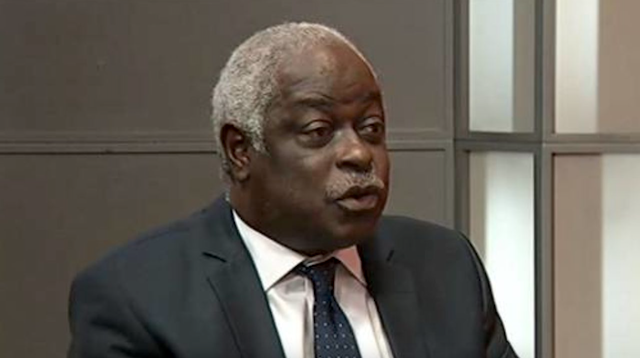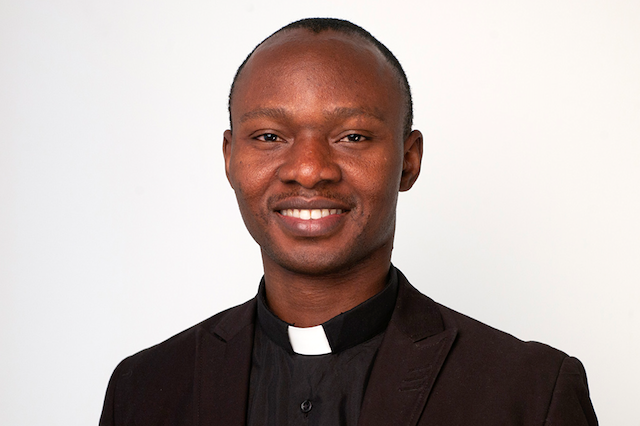“The gains obtainable in the world are all ungodly”.
The scriptures affirm that: “The Most High God rules in the kingdom of men.” (Daniel 5:21). Nevertheless, the wisdom of God says it is only the wicked who prosper in the world:
“Behold, these are the ungodly, who prosper in the world; they increase in riches.” (Psalm 73:12). The righteous only prosper in the kingdom of God.
Worldly wealth
The riches of this world are counterfeit. Jesus says they are deceitful. (Matthew 13:22). When a man has lots of money, we say he is rich. But Jesus disagrees:
“You say, ‘I am rich, have become wealthy, and have need of nothing’ -and do not know that you are wretched, miserable, poor, blind, and naked. (Revelation 3:17).
Jesus says the rich in this world should not be envied but pitied: “Woe to you who are rich, for you have received your consolation.” (Luke 6:24).
James echoes this: “Come now, you rich, weep and howl for your miseries that are coming upon you! Your riches are corrupted, and your garments are moth-eaten. Your gold and silver are corroded, and their corrosion will be a witness against you and will eat your flesh like fire.” (James 5:1-3).
The worldly rich are so poverty-stricken and disadvantaged that they cannot inherit the kingdom of God. Jesus says: “It is easier for a camel to go through the eye of a needle than for a rich man to enter the kingdom of God.” (Matthew 19:24).
He says furthermore: “No one can serve two masters. Either he will hate the one and love the other, or he will be devoted to the one and despise the other. You cannot serve both God and Money.” (Matthew 6:24).
True riches
Jesus cautions about the confusion of money with true riches: “If you have not been trustworthy in handling worldly wealth, who will trust you with true riches?” (Luke 16:11).
If true riches cannot be found in this world, where then can they be found? They can only be found in Christ. Jesus says: “I counsel you to buy from Me gold refined in the fire, that you may be rich.” (Revelation 3:18).
True riches are not denominated in world currencies but in the glory of God. When Moses asked to see the glory of God, he did not see money, gold, or silver. Instead, he saw the intrinsic nature and character of God.
“The Lord passed before him and proclaimed, ‘The Lord, the Lord God, merciful and gracious, longsuffering, and abounding in goodness and truth, keeping mercy for thousands, forgiving iniquity and transgression and sin, by no means clearing the guilty, visiting the iniquity of the fathers upon the children and the children’s children to the third and the fourth generation.” (Exodus 34:6-7).
The riches of God are in God and not in the world. The glory of God is the fruit of the Holy Spirit. When we receive the Holy Spirit, we receive: “the unsearchable riches of Christ.” (Ephesians 3:8). We are enriched in everything by Him. (1 Corinthians 1:5).
It is therefore a contradiction for those who have received the fulness of Christ to then hanker after the counterfeit riches of this world.
Kingdom dynamics
God never gives true riches to those who are not in Christ. He only gives them counterfeits. All worldly wealth is counterfeit. “For all these worldly things, these evil desires-the craze for sex, the ambition to buy everything that appeals to (us), and the pride that comes from wealth and importance-these are not from God. They are from this evil world itself.” (1 John 2:16-17).
God would never give anything valuable to unbelievers. He does not give what is holy to the dogs; nor cast His pearls before swine, lest they trample them under their feet.” (Matthew 7:6). He only gives unbelievers the things He despises. Jesus says: “What is highly valued among men is detestable in God’s sight.” (Luke 16:15).
So, if you ever see an unbeliever with anything, know automatically that it is rubbish. The unbeliever has earthly riches because they are garbage. They are a whole lot of nothing. The only things of value are not in the world but in the kingdom of God.
This prognosis means everything we gain in this world is rubbish. That also includes the worldly gains of believers. The gains of this world distract and prevent us from attaining the great gains of the kingdom of God. The gains obtainable in the world are all ungodly. But great gains are reserved for the godly, and they are all in Christ.
Our rubbish gains in the world include our pedigree, education, social status, financial resources, fame, and fortune et cetera. Once we receive Christ and He opens our eyes, we come to realise that these gains are worthless.
That is why the highfalutin pastors of our churches are confused and confusing. Paul refers to them as: “Men of corrupt minds and destitute of the truth, who suppose that godliness is a means of gain. From such withdraw yourself. Now godliness with contentment is great gain.” (1 Timothy 6:5-6).
Righteous conversion
Therefore, he says:
“What things were gain to me, these I have counted loss for Christ. Yet indeed I also count all things loss for the excellence of the knowledge of Christ Jesus my Lord, for whom I have suffered the loss of all things, and count them as rubbish, that I may gain Christ. (Philippians 3:7-9).
The progression in this scripture is instructive. When Paul met Christ, he initially converted his earlier gains into losses. This conforms to the prophecy that in Christ: “Every valley shall be filled, and every mountain and hill brought low.” (Luke 3:5).
But then he soon discovered that the things he lost were all rubbish. We do not lose rubbish. We discard them. We throw them away. In effect, he lost nothing but gained everything.
Let me state this graphically so that its true import is not missed. He now regards everything that men value such as money, houses, cars, fame, fortune, beauty, pedigree, and achievements in this world (to mention but a few) as all rubbish. They all become inconsequential.
So, he says to those of us who are in Christ:
“In this new life one’s nationality or race or education or social position is unimportant; such things mean nothing. Whether a person has Christ is what matters, and he is equally available to all.” (Colossians 3:11).
Riches in glory
The world is in a drought. We live in a dry and thirsty land where there is no water. (Psalm 63:1). But out of the belly of the believer flows rivers of living water. (John 7:38).
There is too much counterfeit in the world. But it is short of goodness. It is lacking in righteousness, truth, and compassion. “Judgment is turned away backward, and justice stands afar off: for truth is fallen in the street, and equity cannot enter.” (Isaiah 59:14).
There is a surfeit of money, but a dearth of mercy. People need the truth. They need the righteousness of God.
Believers are the people with great gains who can supply what the world needs according to our riches in glory by Christ Jesus. (Philippians 4:19).
![[Devotional] IN HIS PRESENCE: God has saved the best for the last](https://thenewsguru.ng/wp-content/uploads/2021/12/Screenshot_20211202-092925.png)


